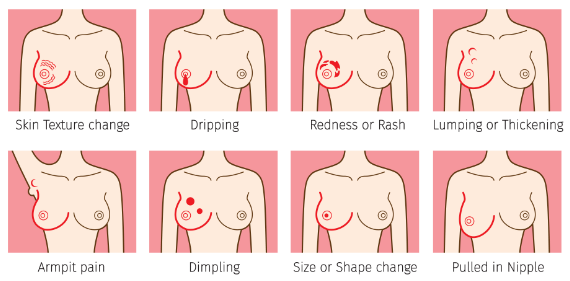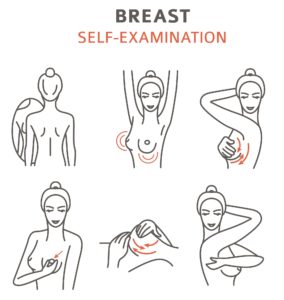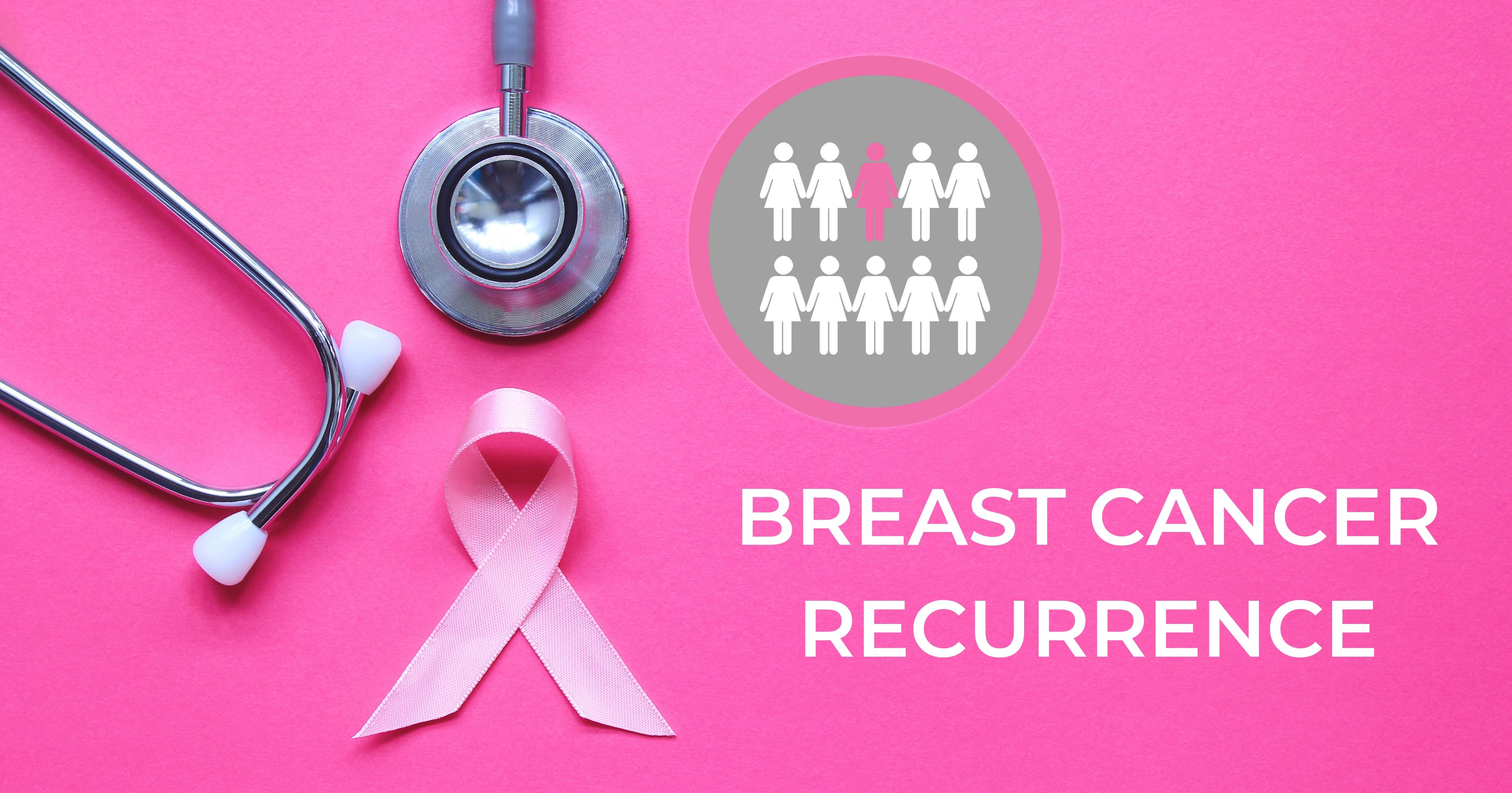Breast cancer in most cases does not return after treatment, but it is common for a survivor to worry for breast cancer coming back to their body. If it happens, it is termed as “breast cancer recurrence”.

SIGNS AND SYMPTOMS OF BREAST CANCER RECURRENCE
Symptoms indicating breast cancer recurrence are mostly similar to the ones experienced while detection of primary breast cancer. They can vary from one person to another and sometimes breast cancer recurrence can not have any of these symptoms.
Changes that can occur in an around the chest area:
- Swelling in your chest area
- Change in shape and size of your breasts
- Change in skin texture, puckering or dimpling of skin
- Liquid discharge from the nipple area/ nipple being inverted or seemingly pulled in
- A lump, thickening or swelling (this can be away from your treated breast) that feels different
Changes that can occur elsewhere:
- Unexpected weight loss or loss of appetite
- Ongoing headaches that might be severe at times
- Dry cough or feeling of breathlessness
- Feeling of fatigue that does not go away even with adequate rest
- Pain in the bones of your body, around hip area or ribs, that does not go away even with pain relief medication
In case you feel any of these, it is suggested that you immediately report this to your physician, or if you are regularly visiting the hospital for follow ups, you can directly speak to your breast cancer nurse/ oncologist.

WHAT TO DO WHEN YOU EXPERIENCE ANY OF THE SYMPTOMS
Most of the symptoms of pain, fatigue and shortness of breath turn out to be the side effects of primary breast cancer treatment. But in some cases, it might turn out to be signs of secondary breast cancer or breast cancer recurrence.
Sometimes, it might happen that the other breast, where surgery has not been done, is affected by cancer cells. This again would require surgical intervention, followed by chemotherapy. or radiotherapy.
Therefore if you feel anything unusual about your body, take an appointment from your physician and ask for advice on the next steps. If you are still undergoing the follow-up process, you may consult your oncologist directly, If you have completed the follow up sessions, report to your hospital again with the symptoms. It is suggested that you consult the same oncologist for the symptoms, as he/she might be already aware about your previous treatments and case history.
CHANCES OF BREAST CANCER RECURRENCE
The chances of breast cancer recurrence differs from person to person. It depends on various factors such as the size, type, grade and features of the cancer and whether the lymph nodes were affected. The inherent genetic features of the body also plays a vital role in this case.
The treatment team that was associated with the treatment of your primary breast cancer would inform you about the cancer recurrence to you during your discharge. Note that this has nothing to do with your choice of breast reconstruction. The chances of breast cancer recurrence is higher in the first few years and reduces with time.
However, there are cases of breast cancer recurrence after many years of primary breast cancer treatment, which is why it is necessary to be always breast and body aware. The fact that early detection and treatment increases chances of survival manifold holds true for any phase of breast cancer (or any type of cancer).

HOW TO CHECK FOR CHANGES
There is no set way to check for changes pertaining to breast cancer recurrence. After surgery, you scar area may feel numb, or you might have a burning sensation. These feelings slowly recede with time.
To feel any change happening to your breasts, you may touch them during shower, or while applying body lotion. If you have a feeling of pain that persists, or feel any changes in your breasts, inform your physician immediately.

MOVING ON FROM WORRIES ABOUT RECURRENCE
Once diagnosed with breast cancer, it is commonly seen that people are heavily affected by the fear and worries of cancer recurrence, in breast or any other body part. Initially even warning signs of cold, influenza or fever might scare you, but slowly with time, you would be able to overcome the unnecessary fear of cancer recurrence.
Anxieties tend to happen during hospital visits, or if your acquaintance or close relative is diagnosed with cancer. Slowly you tend to rediscover your journey with theirs.
This is indeed a stressful period. We all cope with such anxieties in our own way and there are no easy answers to any of the questions that keep coming to your mind incessantly. But it is not wise to remain quiet about them either. Just as talking about your diagnosis and treatment may have helped you through the early days, talking about your fears relating to recurrence may help you later on. You can be the inspiration for many others who have been diagnosed with breast cancer.
If you are still finding it very difficult to escape from the anxieties, or think you need psychological help, you may seek assistance from various credible breast cancer care groups.
